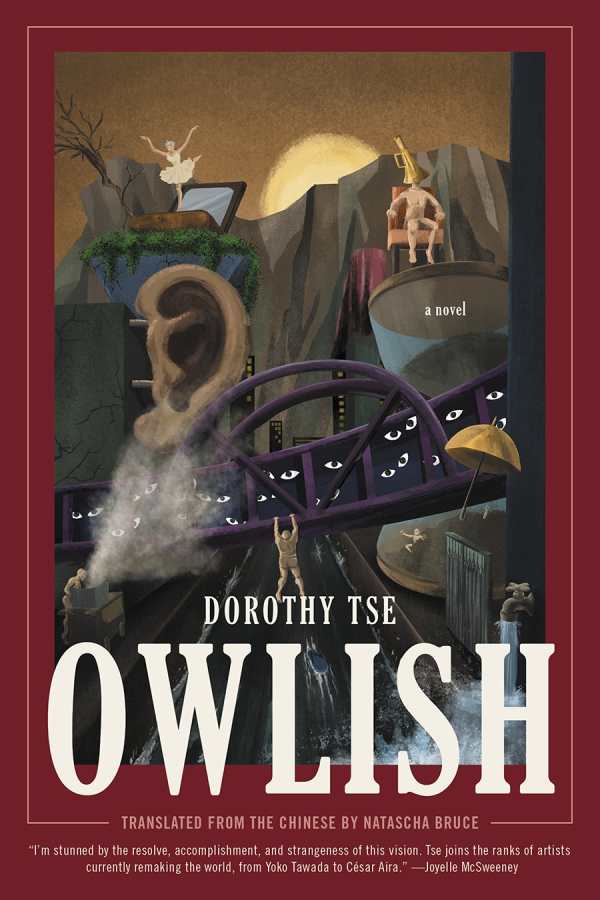
Owlish
In Dorothy Tse’s novel Owlish, a bizarre love affair upends a respectable man’s dull but orderly life in a city that is anything but ordinary.
Perhaps it was inevitable that Professor Q, a middle-aged man caught in a dead-end job and a sexless marriage, would decide to have an affair. But his paramour is no ordinary woman: Aliss is a life-size ballerina doll who enchanted Q from the moment he laid eyes on her. On advice from his old friend Owlish, Q finds a “love nest” for himself and Aliss within an abandoned church—sparking a chain of events that can only end in tragedy.
Sexual frustration dogged Q for most of his life, even after his marriage to beautiful but unresponsive Maria. This manifests itself in an obsession with sexual imagery and female dolls. His fantasies pervade his dreams and rule his waking life until he is too far gone to recognize his slow but sure drift from reality—a drift that others, more clear-eyed and sometimes more unscrupulous than he, cannot fail to notice.
Fanciful, offbeat prose captures the surreality of Q’s world. Though born elsewhere, through a traumatic series of events, he came to Nevers, a city in a developing nation where propaganda and willful ignorance obscure the price of progress. Q, infatuated with his new romance, ignores the unrest rocking his troubled city until he is caught in its grip. He never does figure out the full story behind his affair, his city, or the truth about his friend Owlish—indeed, he is incapable of such thoughts. All that is left to him is the only thing he ever truly possessed: a fantasy.
Owlish is a dreamlike novel about how the things one cannot see or refuses to acknowledge can still cause harm.
Reviewed by
Eileen Gonzalez
Disclosure: This article is not an endorsement, but a review. The publisher of this book provided free copies of the book to have their book reviewed by a professional reviewer. No fee was paid by the publisher for this review. Foreword Reviews only recommends books that we love. Foreword Magazine, Inc. is disclosing this in accordance with the Federal Trade Commission’s 16 CFR, Part 255.
